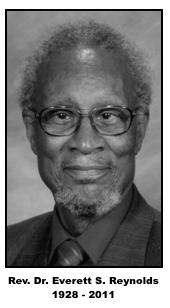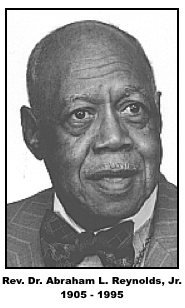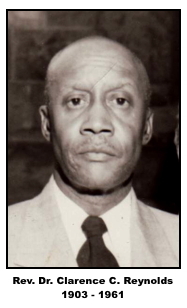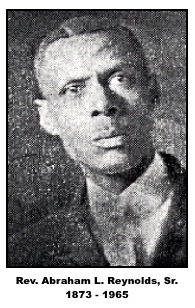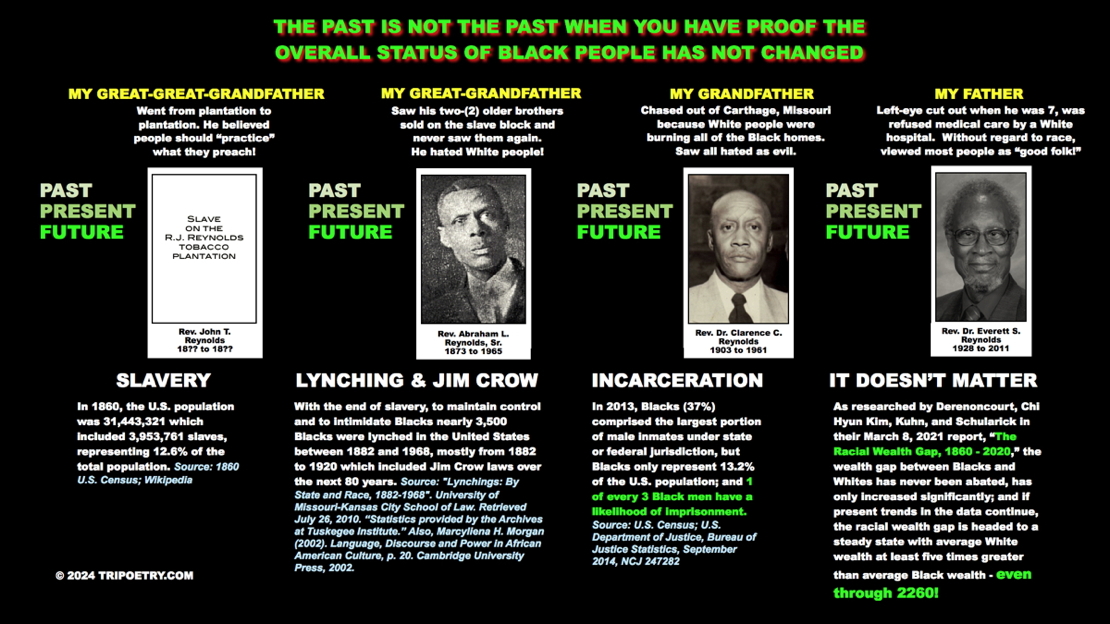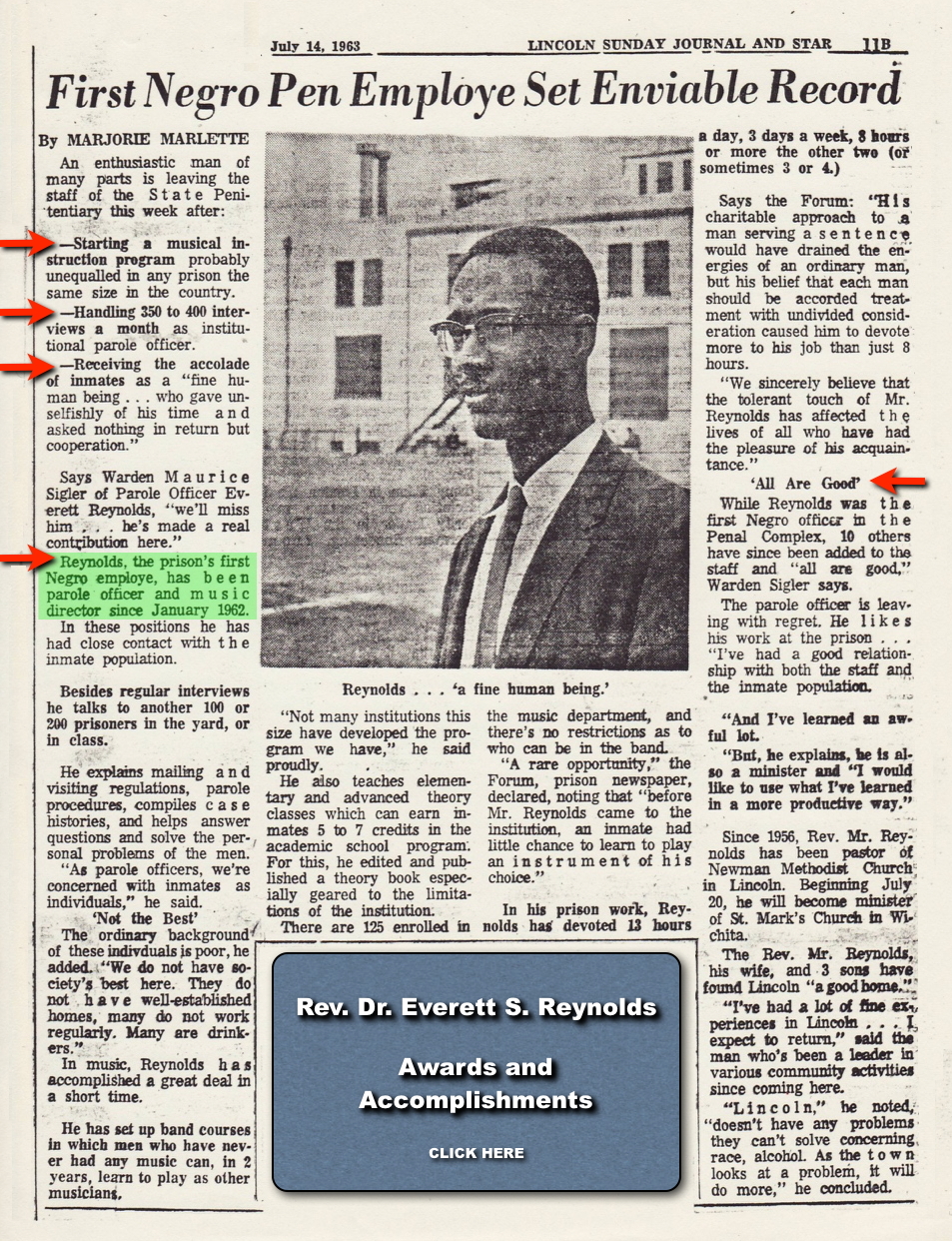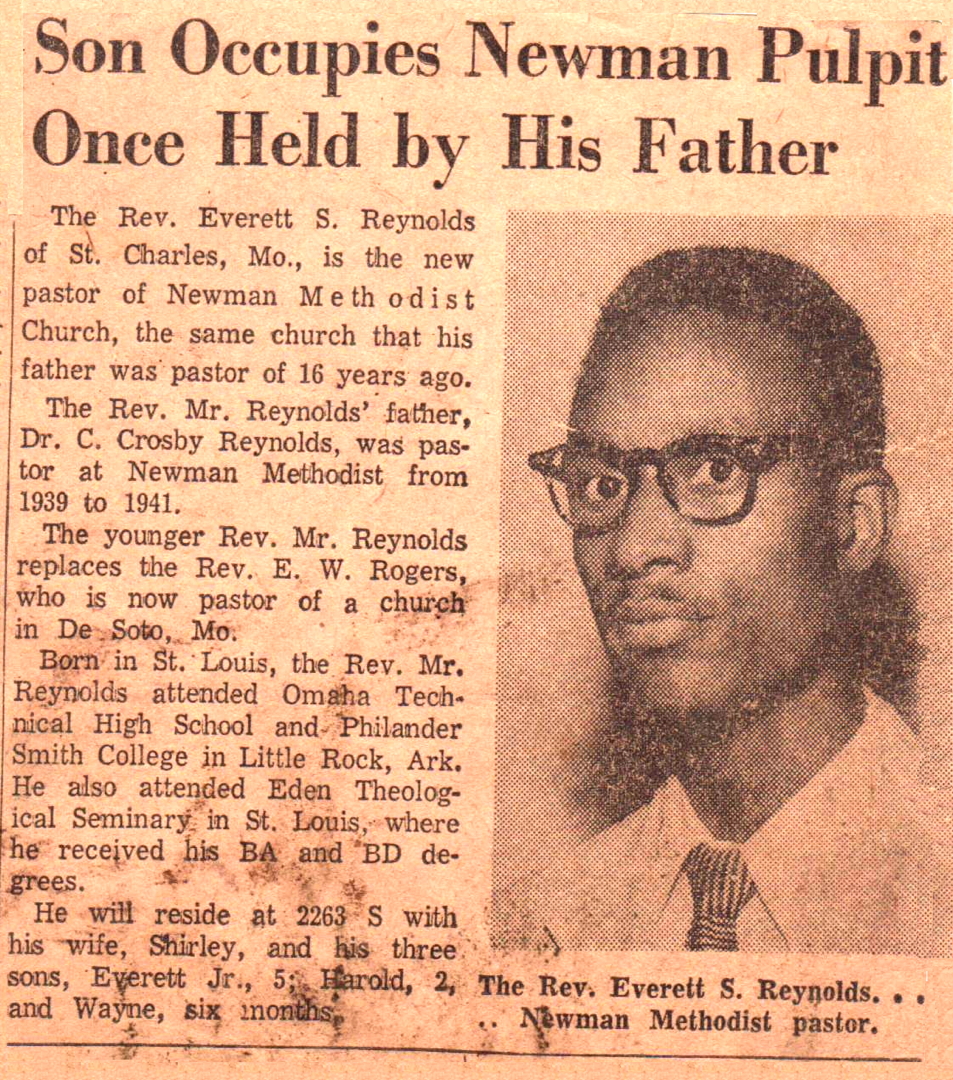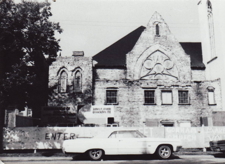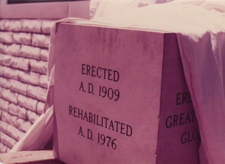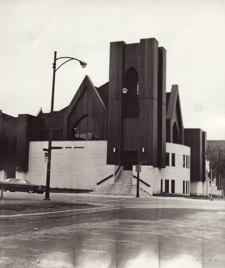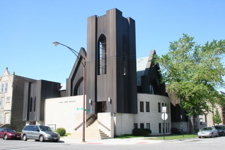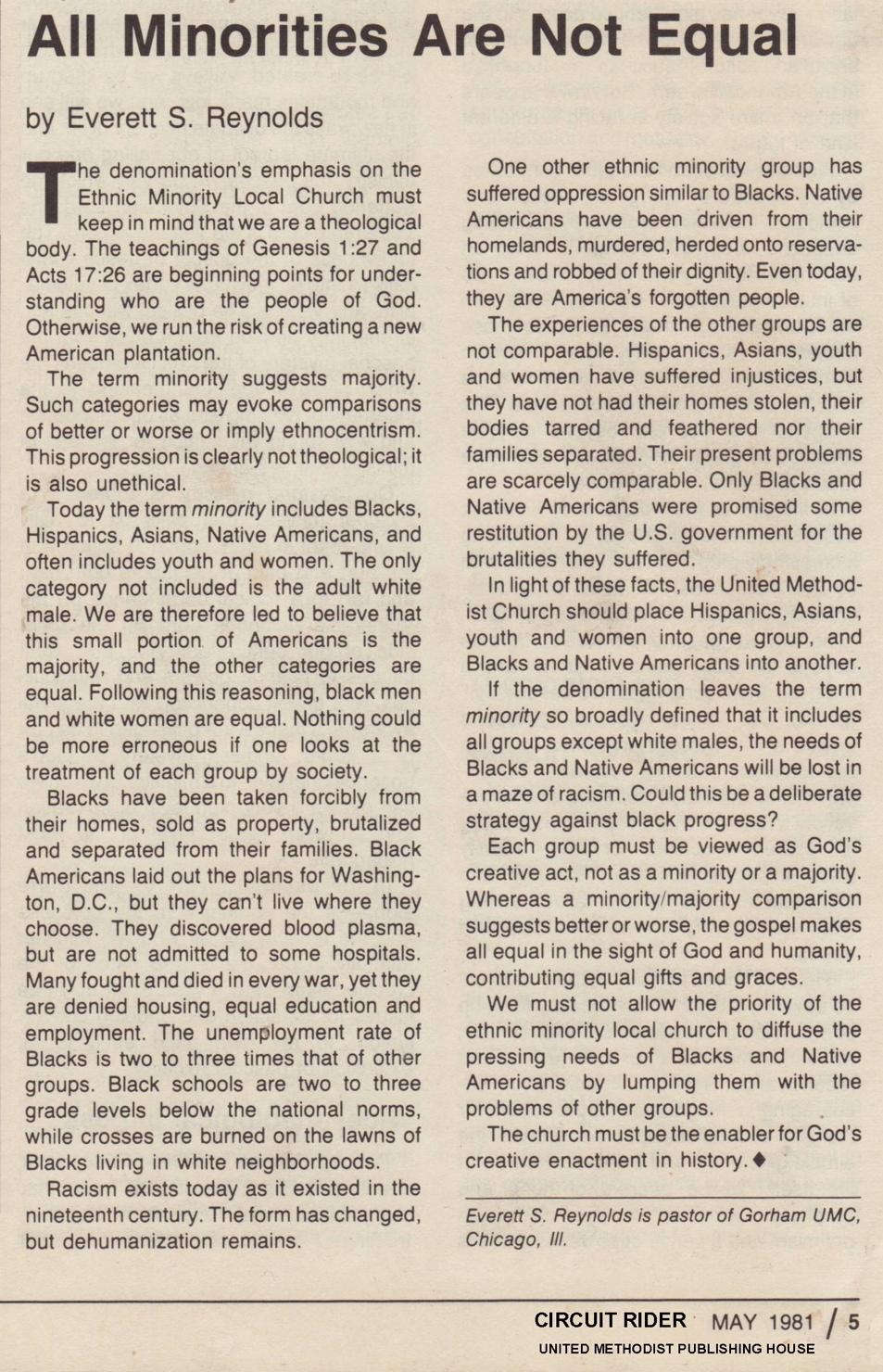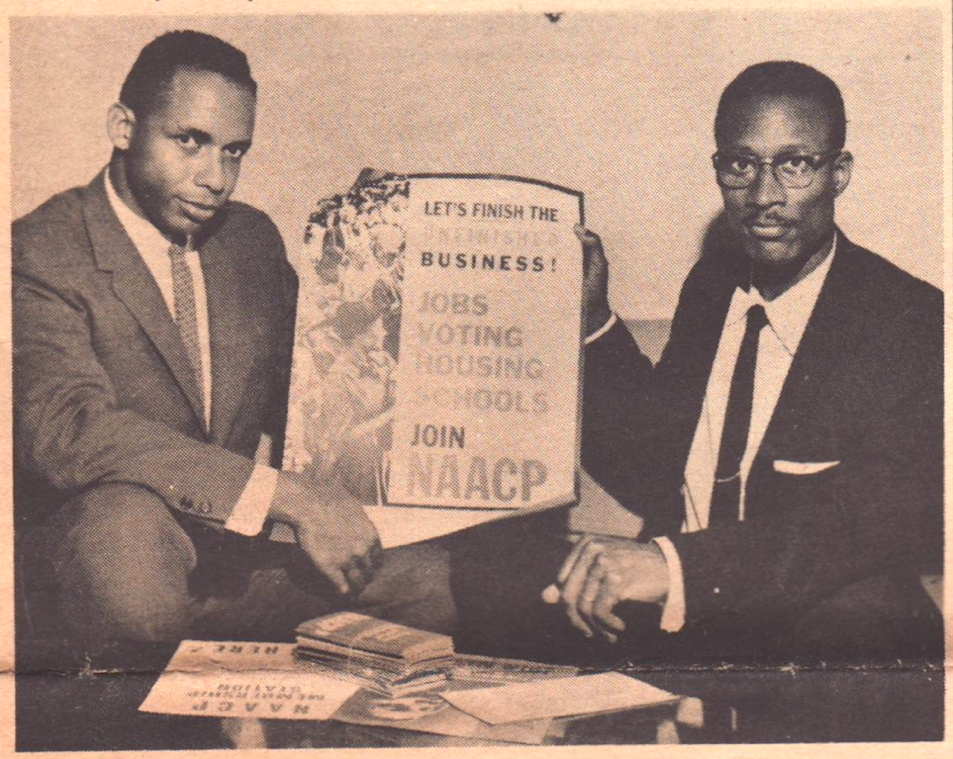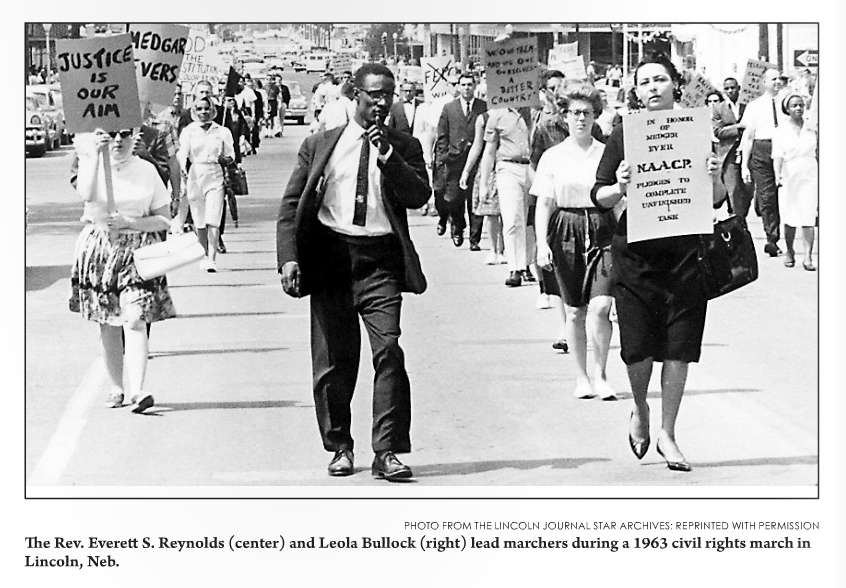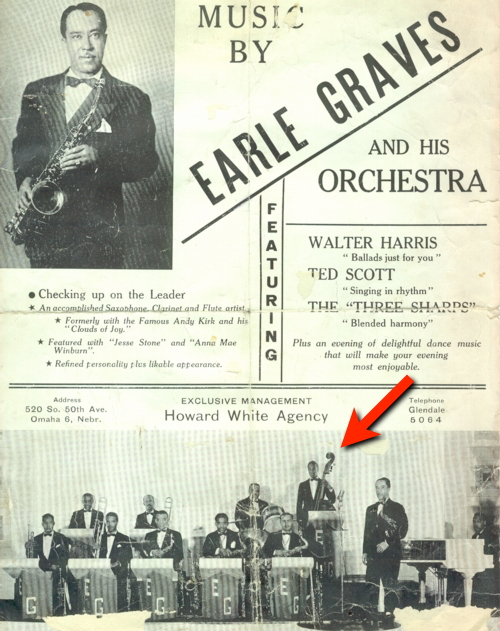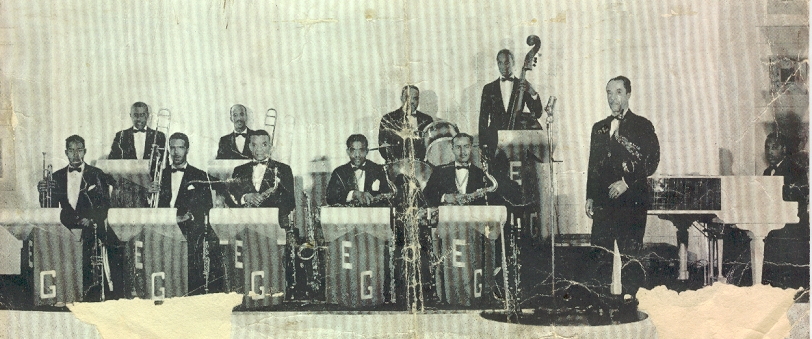The U.S. Commission on Civil Rights (the “Commission”) conducted a briefing in Omaha, Nebraska, on September 8, 2006 to get a better understanding of the civil rights ramifications of the Chambers-Raikes amendment and its effects on minority and non- minority students. The Commission consulted 10 panelists, including state government officials, community activists, parents, and other individuals representing a broad segment of the Omaha community.
Since the Commission’s visit to Omaha, LB 1024 has been repealed and superseded. On May 24, 2007, Governor Heineman signed Nebraska Legislative Bill 6412 in an effort to address the issues raised in the Commission’s briefing as well as other issues. Rather than publish a report on what is now a moot issue, the Commission has elected to post only the panelists’ statements, their biographies and a transcript of the briefing.
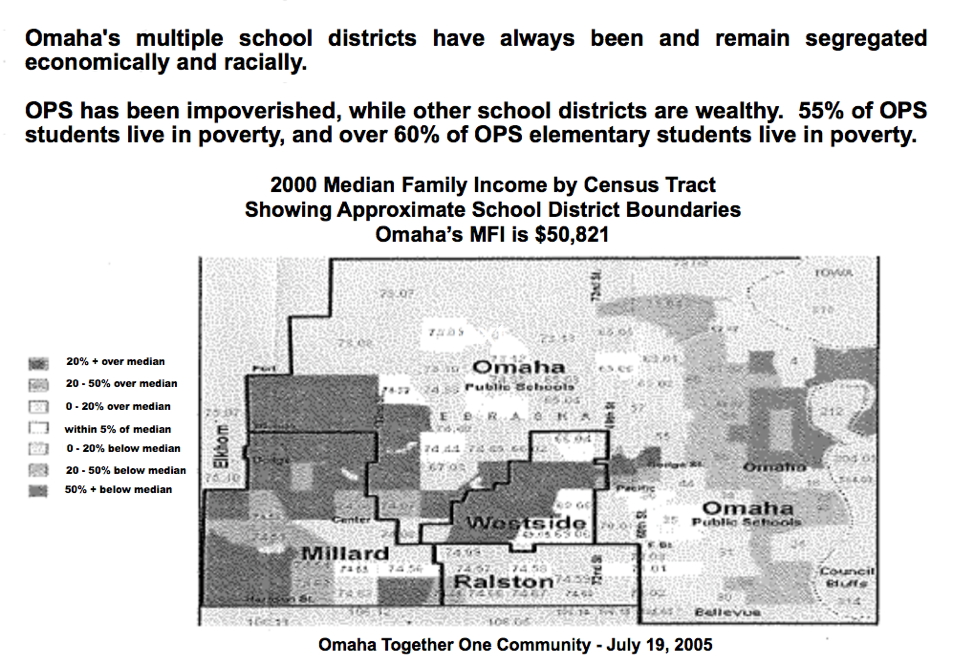
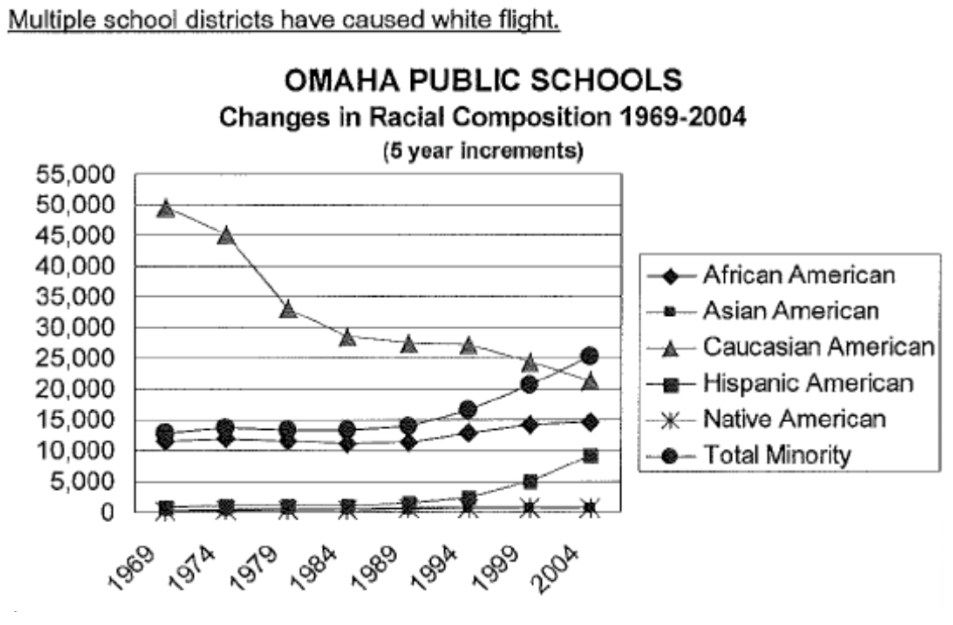
STATEMENT OF REVERENED DOCTOR EVERETT S. REYNOLDS, FORMER PRESIDENT OF THE OMAHA NAACP
Everett S. Reynolds is the Pastor of Lefler United Methodist Church in Omaha, Nebraska, and has taught at Wichita State University, Philander Smith College, and the University of Omaha. He earned his bachelor’s degree at Omaha University and Philander Smith College, and his ThD at Faith Theology Seminary. He is a life member of the Nebraska PTA, life member of the NAACP since 1951 and former President of the Omaha Branch of the NAACP (1994 to 2004), and former Vice President of the Lincoln Branch of the NAACP. He has also served as a member of the Omaha Public Schools Advisory Committee for Desegregation and the Urban Renewal Authority in Lincoln, Nebraska.
First let me thank Ms. Sock-Foon MacDougall for calling me and Mr. Kenneth L. Marcus for writing me, submitting the guidelines from which I shall address my remarks.
Ladies and gentlemen, members of the United States Civil Rights Commission, let me thank you for the opportunity to come before you today.
Education is the number one issue in the world today. It must necessarily, then, be the number one issue in Nebraska and yes, Omaha, Nebraska. We all know that at one time in America, it was against the law for slaves--black people--to learn, or to be taught to read and write. The struggle for equality and justice began when the first slaves were brought to America in 1619 and continues even as we speak.
Booker T. Washington, the first Negro to receive an honorary degree from Harvard University, is quoted as having said, “The conditions of Negroes are deplorable but needing change from within. The change should be gradual, and its wake should not disturb the rest of American society.”
For the moment, let’s set aside former U. N. Ambassador Andrew Young and former U.S. Secretary of State Colin Powell and current Secretary of State Condoleezza Rice. Let’s look at what Booker T. Washington calls gradualism. It took fifty eight years (1896 to 1954) from Plessy v. Ferguson to Brown v. Board of Education and now it is fifty two years (1955 to 2006) from Brown v. Board of Education to LB 1024. Over one hundred years and still we are talking about yesterday’s issues. One moment of change in American education came when Homer Plessy stood up for what he believed and the courts ruled in 1896, Plessy v. Ferguson, that segregation could be practiced if the facilities were “separate but equal.” Really, everybody knew even then what that really meant: “separate and unequal”. It was not until 1955 that Brown v. Board of Education declared that “separated but equal” was inherently unequal and violated the constitution of the United States of America. That was in 1955.
Let me ask: Which one of us would go out today and buy an 1896 automobile? You would say, “You have got to be joking!” Well, what about buying a 1955 automobile? And again, you would say that we must be joking. The 2006 automobile comes from the factory equipped with air conditioning, heat, cassette and DVD players, on-star tracking and alarm systems, new suspension, etc. On any make, and, as standard equipment on most. We buy these modern automobiles and expect such features, look for such features and demand such features when they come from the factory.
Ladies and gentlemen, everything has changed. The way we fight wars has changed. Health and medical technology has changed and, lastly, computers have changed the world. I come before you today to let you know, and to declare, that quality education, quality integrated education must be the order of the day in 2006 and onward into the future.
Quality, Integrated Education and Nothing Less!
Integrated education was good back then, for it was the stepping stone to quality education. Plessy v. Ferguson was good in its day; it was a stepping stone to Brown v. Board of Education. When I talk to legal minds here in Omaha, Nebraska, they tell me that Brown v. Board of Education was about integration and not, I repeat, and not about quality education.
When I sat in the class room as a 4th grader in a Nebraska school, I would hear my teacher tell jokes, the “N” word jokes. I finished high school in a Nebraska school system and never finished reading an English book. Yes, I graduated. As President of the Omaha branch of the NAACP, I was called to many schools. Let me share a few experiences. I remember when I was called to assist a black family where the son had been suspended from school for kicking a student. The young man was wearing white tennis shoes and socks, white pants and shirt. The young man who was kicked was white-Caucasian kicked in the face. There was blood on the floor and on the steps and hallway floor, but no blood anywhere on the young black student. With white shoes, socks and pants, he had no blood on him at all, and yet he was suspended for kicking the white student in the face. Or take the case of the teacher who grabbed a young black girl by the arm so hard that her nails broke the skin, and when the young black girl pushed the teacher away because she was hurting her, the girl was suspended. You might ask what was the girl doing? It was reported that she and two of her friends were making too much noise going down the hall. Also, consider the case of the teacher who held a picture of an ape next to a little black girl’s face and told her that she looked just like the picture; and finally, there is the school that sold “slaves” as a money-making project.
No, integrated education is not the end of the journey in education, it is another jump-off point on the journey for quality education, integrated, quality education. LB 1024, as amended, is a step in that direction. I tell you this, the present system is not working. There must be a change, a radical change in order to be educationally competitive, not just for minority (African Americans, Latino Americans, Native Americans and Asian Americans) but for all students. Not just for minority students to compete with white students, oh no, but for all students to be able to compete in a world and global educational market. We can no longer talk merely about “separate but equal” or Brown v. Board of Education, we must talk about students achieving equally in a highly competitive educational global market. Two-and-a-half grade levels behind can not be acceptable under any circumstances. In this current system, it is growing worse; yes, the achievement gap gets wider and wider. We need a radical change in the system in Omaha, Nebraska, and I fully support LB 1024, as amended, and signed by our governor. The law needs to stay in effect and be fully implemented. The class room must be, for our young people’s minds, exactly what the modern factory is for the automobile – fully equipped with the best technology and educational methodology available, for every student.
Does “neighborhood schools” under this plan mean segregation, because the respective neighborhoods are predominantly of one race? If so, then certainly Omaha schools currently are segregated, like district 66 and west Omaha. You see, it only becomes “racial” when the race is minority. However, neighborhood control of schools has always been the goal of American education. The problem is that we are talking here about minorities exercising control. Ladies and gentlemen it is really racist to say that an all white district is all right, but any district that is majority minority is all wrong. Unquestionably, that is a purely racist idea; and I hope we are not going to redefine racism in 2006 to attempt to make it look different for what it actually is. What this Bill is talking about is quality, integrated from the factory. From the class room of every building in every district.
In the beginning, it was against the law for slaves to learn or to be taught to read and write. The first step or jumping-off point toward quality, integrated education was Plessy v. Ferguson. The second step or jumping-off point toward quality, integrated education was Brown v. Board of Education; and the third step or jumping-off point toward quality, integrated education is LB 1024.
Let’s make it happen. Thank you for this opportunity.
COMMISSIONER TAYLOR: Thank you, Dr. Reynolds, and we're going to have some time to hear more from you in a moment. Would you answer one question: Do you support 1024 in its current form?
REV. REYNOLDS: Absolutely, as amended and signed by the governor.
COMMISSIONER TAYLOR: All right. Thank you.
[To read the full report, click here.]

